Ford’s 18th annual sustainability report: Ford Motor Co. announced a series of gains made in sustainability initiatives in its annual report. The automaker joined the Business Alliance for Water and Climate “Improve Water Security” initiative supporting its drive to someday have zero usage of 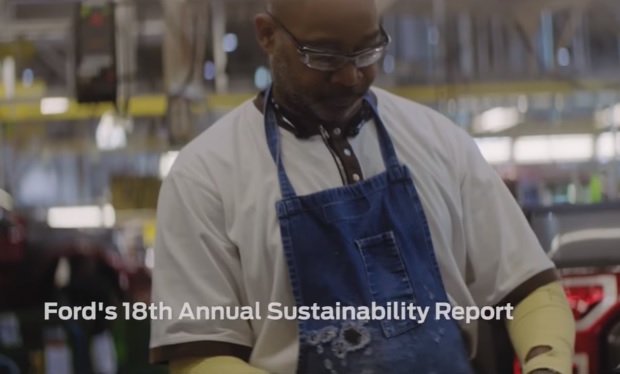 drinkable water in manufacturing. Since 2000, Ford has cut water use by more than 61 percent. It’s partnership with Jose Cuervo continued using agave plants for sustainable bioplastics being placed in Ford vehicles. Now about 300 vehicle parts come from renewable sources such as soybeans, cotton, wood, flax, jute, and natural rubber. Its aluminum closed-loop recycling system recycles about 20 million pounds of military-grade aluminum alloy per month, enough to build more than 37,000 F-Series truck bodies a month. Ford continues to reduce the footprint of its supply chain with an enhanced Partnership for a Cleaner Environment program that has grown to more than 40 suppliers in 40 countries – up from 25 suppliers in 2015. The automakers zero-waste-to-landfill program has been expanded to a total of 82 Ford facilities around the world, where no waste is sent to landfills. You can read the company’s 18th annual sustainability report to learn more, plus read and watch a video on improving safety and fuel economy, reducing manufacturing carbon dioxide, the company global electrification strategy, and sustainable mobility services.
drinkable water in manufacturing. Since 2000, Ford has cut water use by more than 61 percent. It’s partnership with Jose Cuervo continued using agave plants for sustainable bioplastics being placed in Ford vehicles. Now about 300 vehicle parts come from renewable sources such as soybeans, cotton, wood, flax, jute, and natural rubber. Its aluminum closed-loop recycling system recycles about 20 million pounds of military-grade aluminum alloy per month, enough to build more than 37,000 F-Series truck bodies a month. Ford continues to reduce the footprint of its supply chain with an enhanced Partnership for a Cleaner Environment program that has grown to more than 40 suppliers in 40 countries – up from 25 suppliers in 2015. The automakers zero-waste-to-landfill program has been expanded to a total of 82 Ford facilities around the world, where no waste is sent to landfills. You can read the company’s 18th annual sustainability report to learn more, plus read and watch a video on improving safety and fuel economy, reducing manufacturing carbon dioxide, the company global electrification strategy, and sustainable mobility services.
Webcast on PEV sales: On Sept. 12, UCLA, J R DeShazo, director of UCLA’s Luskin Center, will lead a webcast from Sacramento on the future of the plug-in electric vehicle market. Details on a new study will focus on the early development of the market and the factors likely to shape future growth ties into California’s public policy goals for clean vehicle sales. The study examined consumer response to PEV market offerings and tested hypotheses about potential determinants of PEV sales over time and across locations in California.
Tesla Semi range: Tesla will be launching a semi-truck next month capable of going 200 to 300 miles per charge, according to Scott Perry, a Ryder System executive interviewed by Reuters. Perry 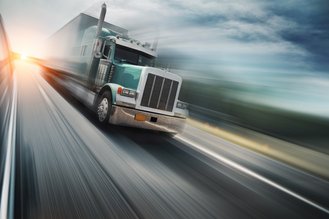 said he met with Tesla earlier this year to discuss what the Tesla Semi truck will be like that CEO Elon Musk announced last year and said would be revealed in September. It will be ideal for short-haul trucking and won’t have anything like the capacity of 1000-miles per fueling big rigs typically seen on U.S. highways. The Tesla Semi could work for companies needing freight hauling from ports to warehouses and other day trips. Tesla will face a series of challenges including ramping up later this year for the Tesla Model 3.
said he met with Tesla earlier this year to discuss what the Tesla Semi truck will be like that CEO Elon Musk announced last year and said would be revealed in September. It will be ideal for short-haul trucking and won’t have anything like the capacity of 1000-miles per fueling big rigs typically seen on U.S. highways. The Tesla Semi could work for companies needing freight hauling from ports to warehouses and other day trips. Tesla will face a series of challenges including ramping up later this year for the Tesla Model 3.

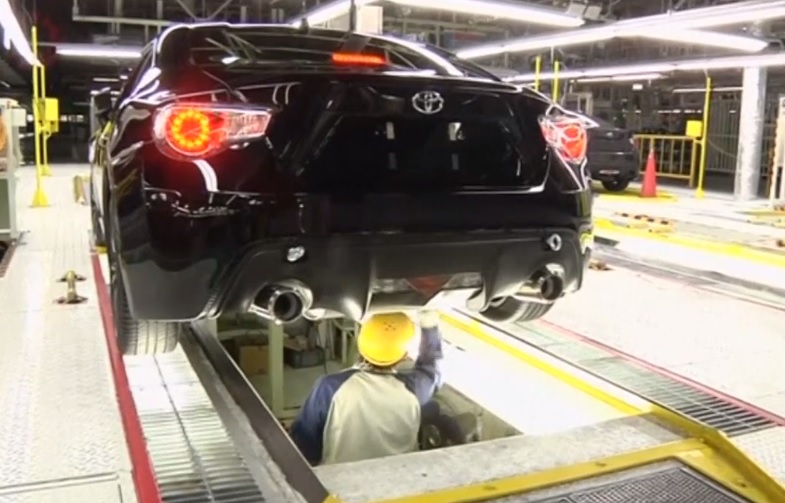 to-30 minutes using fast chargers for a range of just 185 to 250 miles. The first Toyota electric vehicle built on the new platform will come as early as 2022. Toyota is ready to compete with market leaders including Nissan and Tesla as EVs become more widely adopted in the next few years. An in-house unit led by President Akio Toyoda is working on developing and marketing a new lineup of EVs, as the company changes course from its previous path focusing only on hybrids and hydrogen fuel cell vehicles as alternative powertrains. The automaker has also been reported to plan entry into mass production of EVs in China as early as 2019.
to-30 minutes using fast chargers for a range of just 185 to 250 miles. The first Toyota electric vehicle built on the new platform will come as early as 2022. Toyota is ready to compete with market leaders including Nissan and Tesla as EVs become more widely adopted in the next few years. An in-house unit led by President Akio Toyoda is working on developing and marketing a new lineup of EVs, as the company changes course from its previous path focusing only on hybrids and hydrogen fuel cell vehicles as alternative powertrains. The automaker has also been reported to plan entry into mass production of EVs in China as early as 2019.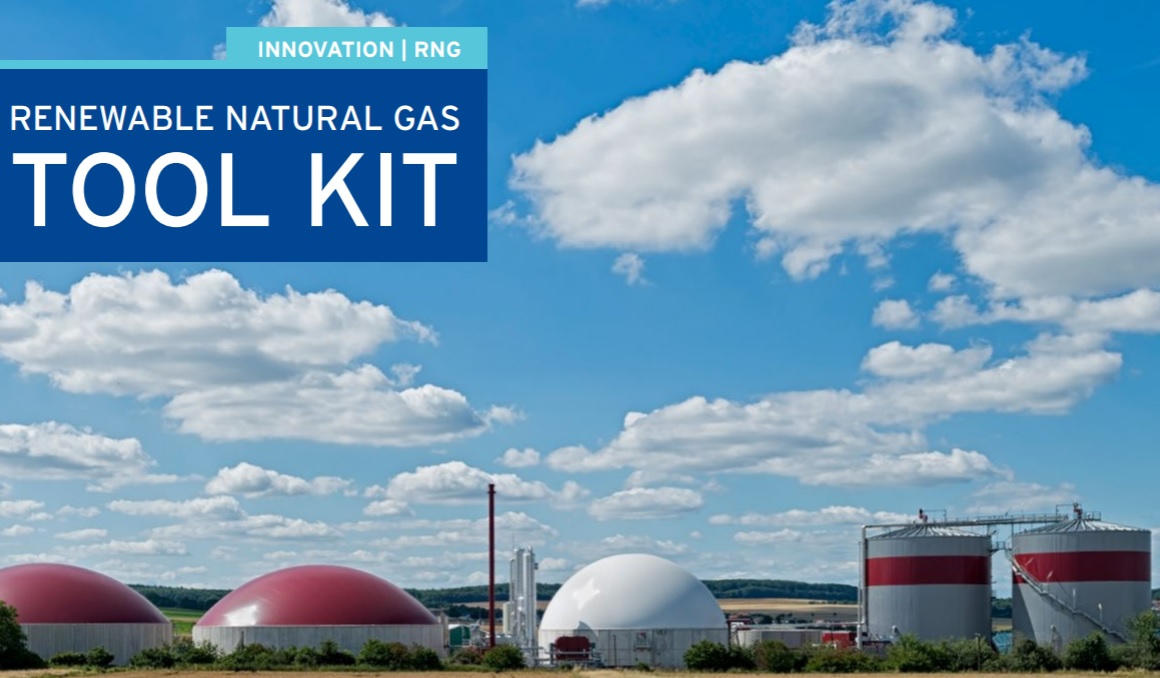 downloadable toolkit has been set up to renewable natural gas (RNG) producers and developers interested in joining up their projects with the SoCalGas pipeline network. In addition, changes have been adopted that will accelerate the interconnection process. SoCalGas reports that about 80% of all methane emissions in California come from the state’s dairy and farm operations, landfills, and wastewater treatment plants. That methane can be harnessed and cleaned to produce RNG for use in transportation as well as in homes and businesses.
downloadable toolkit has been set up to renewable natural gas (RNG) producers and developers interested in joining up their projects with the SoCalGas pipeline network. In addition, changes have been adopted that will accelerate the interconnection process. SoCalGas reports that about 80% of all methane emissions in California come from the state’s dairy and farm operations, landfills, and wastewater treatment plants. That methane can be harnessed and cleaned to produce RNG for use in transportation as well as in homes and businesses. vision that will give the driver a better sense of what’s going on around the electric car. That could tie well into the Pro Pilot Assist features announced earlier. There’s also the e-Pedal, allowing the driver to do everything from one pedal. The Leaf will be coming out first in the U.S. on Sept. 5 with the world launch taking place in Japan the next day.
vision that will give the driver a better sense of what’s going on around the electric car. That could tie well into the Pro Pilot Assist features announced earlier. There’s also the e-Pedal, allowing the driver to do everything from one pedal. The Leaf will be coming out first in the U.S. on Sept. 5 with the world launch taking place in Japan the next day.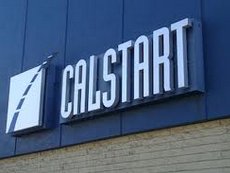 Speakers include: Mary Nichols, Chair, California Air Resources Board; Diarmuid O’Connell, Vice President, Business Development, Tesla; Caroline Choi, Senior Vice President of Regulatory Affairs, Southern California Edison; and Scott Phillippi, Senior Director of Maintenance & Engineering, International Operations, UPS. The hotel block is filling up, so it would be
Speakers include: Mary Nichols, Chair, California Air Resources Board; Diarmuid O’Connell, Vice President, Business Development, Tesla; Caroline Choi, Senior Vice President of Regulatory Affairs, Southern California Edison; and Scott Phillippi, Senior Director of Maintenance & Engineering, International Operations, UPS. The hotel block is filling up, so it would be 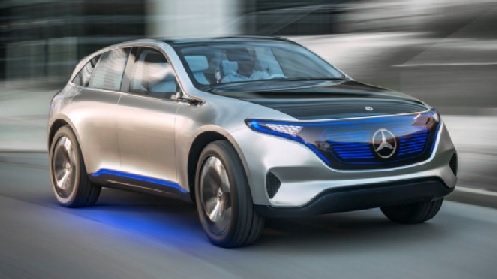 One will be an electric compact car could be the new previously announced EQC sedan that’s slated to start production in 2019. The Mercedes-Benz GLC F-Cell EQ Power will be a fuel cell plug-in hybrid that makes its debut at the car show as a pre-series model. It comes from the EQ Power sub-brand added to its EQ lineup earlier this year. The Mercedes-AMG Project One, a high-performance hypercar, will be getting 1000-plus horsepower and will use Formula 1 hybrid drive technology. There will only be 300 units available. While non-electric, the company will also be showing its first premium pickup truck, the X-Class.
One will be an electric compact car could be the new previously announced EQC sedan that’s slated to start production in 2019. The Mercedes-Benz GLC F-Cell EQ Power will be a fuel cell plug-in hybrid that makes its debut at the car show as a pre-series model. It comes from the EQ Power sub-brand added to its EQ lineup earlier this year. The Mercedes-AMG Project One, a high-performance hypercar, will be getting 1000-plus horsepower and will use Formula 1 hybrid drive technology. There will only be 300 units available. While non-electric, the company will also be showing its first premium pickup truck, the X-Class. will delve into the development, manufacturing, marketing, and servicing of an all-electric vehicle line for the China market. The move will tap into China’s “new energy vehicle” market for plug-in hybrid and all-electric vehicles. The Detroit automakers said that China will have at least six million NEVs sold per year starting in 2025, and that four million of them will be battery-electric vehicles. Zotye Auto sold more than 16,000 electric vehicles in China through July of this year, a 56 percent increase year-over-year.
will delve into the development, manufacturing, marketing, and servicing of an all-electric vehicle line for the China market. The move will tap into China’s “new energy vehicle” market for plug-in hybrid and all-electric vehicles. The Detroit automakers said that China will have at least six million NEVs sold per year starting in 2025, and that four million of them will be battery-electric vehicles. Zotye Auto sold more than 16,000 electric vehicles in China through July of this year, a 56 percent increase year-over-year.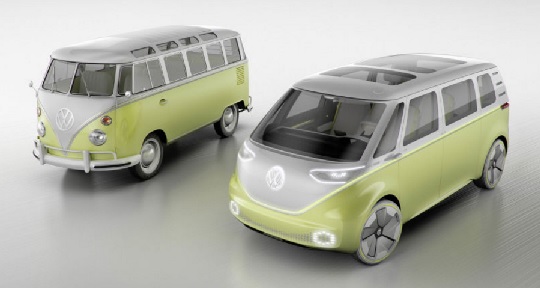 travelers who loved their old VW microbuses, it’s taking the design shape of one of these classic models. Announced Saturday at the Pebble Beach Concours d’Elegance in California, VW CEO Herbert Diess said the demand has been strong since the initial unveiling of the concept earlier this year at the Detroit Auto Show – coming through a lot of letters and emails. “The Microbus has long been part of the California lifestyle. Now we’re bringing it back by reinventing it as an electric vehicle,” he said.
travelers who loved their old VW microbuses, it’s taking the design shape of one of these classic models. Announced Saturday at the Pebble Beach Concours d’Elegance in California, VW CEO Herbert Diess said the demand has been strong since the initial unveiling of the concept earlier this year at the Detroit Auto Show – coming through a lot of letters and emails. “The Microbus has long been part of the California lifestyle. Now we’re bringing it back by reinventing it as an electric vehicle,” he said. leading a lobbying drive to change the way the Environmental Protection Agency views and enforces the biofuels blend mandate. Valero and other oil refiners have taken a costly hit in recent years from the federal Renewable Fuel Standards (RFS) the 10% ethanol blend in gasoline. Valero had to spend about $750 million last year buying RFS credits, according to the company’s securities filings. The company wants the rule to be revised so that the “point of obligation” moves over to retailers and shippers instead of oil refiners. Their coalition has brought in billionaire Carl Icahn, owners of the CVR Energy refiner and who’s served as a special advisor to Trump since his election. Icahn resigned Friday as a Trump advisor after taking a lot of pressure under claims he had a conflict of interests while playing this role.
leading a lobbying drive to change the way the Environmental Protection Agency views and enforces the biofuels blend mandate. Valero and other oil refiners have taken a costly hit in recent years from the federal Renewable Fuel Standards (RFS) the 10% ethanol blend in gasoline. Valero had to spend about $750 million last year buying RFS credits, according to the company’s securities filings. The company wants the rule to be revised so that the “point of obligation” moves over to retailers and shippers instead of oil refiners. Their coalition has brought in billionaire Carl Icahn, owners of the CVR Energy refiner and who’s served as a special advisor to Trump since his election. Icahn resigned Friday as a Trump advisor after taking a lot of pressure under claims he had a conflict of interests while playing this role.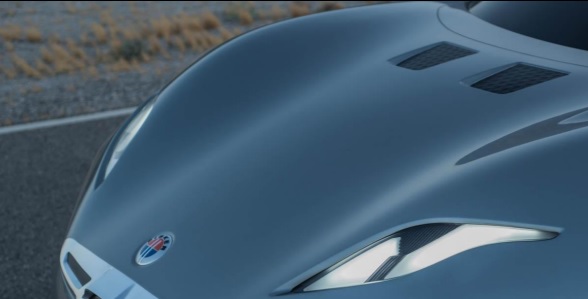 compete directly with the Tesla Model S and Faraday Future FF 91. Technology features include an energy dense battery pack that can be charged in just nine minutes, LiDAR for Level 4 autonomous driving, and a range that Fisker claims will go beyond 400 miles.
compete directly with the Tesla Model S and Faraday Future FF 91. Technology features include an energy dense battery pack that can be charged in just nine minutes, LiDAR for Level 4 autonomous driving, and a range that Fisker claims will go beyond 400 miles. test drive. Nissan is the official sponsor of the event for the third straight year. “The timing couldn’t be better. Bringing LEAF to some of the most enthusiastic EV advocates just days after its global debut is the perfect way to kick things off for this technology-packed car,” said Brian Maragno, director, Nissan EV Marketing and Sales Strategy.
test drive. Nissan is the official sponsor of the event for the third straight year. “The timing couldn’t be better. Bringing LEAF to some of the most enthusiastic EV advocates just days after its global debut is the perfect way to kick things off for this technology-packed car,” said Brian Maragno, director, Nissan EV Marketing and Sales Strategy.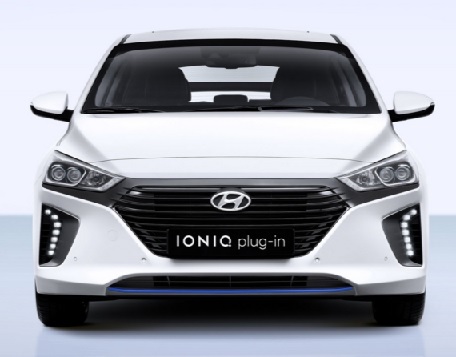 which has gone up to 31 eco-friendly vehicles coming out by 2020, up from the previous goal of 28. The company announced today that one of its new EVs will go 500 kilometers (311 miles) per charge when it comes out after 2021. A small electric SUV will have a driving range of 390 km (about 242 miles) will come out during the first half of next year. The company also announced that it will be launching a hydrogen fuel cell vehicle that can travel more than 580 kilometers (360 miles) after being fueled. The second-generation fuel cell SUV will be coming out early next year. Hyundai said it be going 40% farther than its first-generation fuel cell vehicle, the Tucson ix FCEV. So far, the green car campaign has been led by the Ioniq hybrid, all-electric, and upcoming plug-in hybrid version.
which has gone up to 31 eco-friendly vehicles coming out by 2020, up from the previous goal of 28. The company announced today that one of its new EVs will go 500 kilometers (311 miles) per charge when it comes out after 2021. A small electric SUV will have a driving range of 390 km (about 242 miles) will come out during the first half of next year. The company also announced that it will be launching a hydrogen fuel cell vehicle that can travel more than 580 kilometers (360 miles) after being fueled. The second-generation fuel cell SUV will be coming out early next year. Hyundai said it be going 40% farther than its first-generation fuel cell vehicle, the Tucson ix FCEV. So far, the green car campaign has been led by the Ioniq hybrid, all-electric, and upcoming plug-in hybrid version.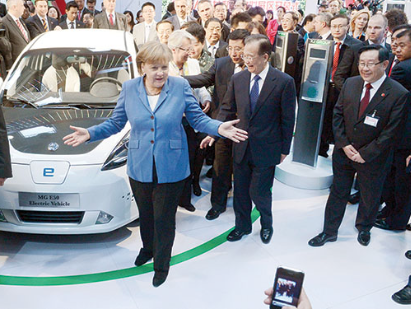 during media interviews this week; and that will likely apply to gasoline-powered vehicles as well. Merkel wouldn’t name the exact year, but said that the UK And France’s plans to ban the sale of new vehicles with internal combustion engines starting in 2040 “were the right approach.” The pressure is on Merkel and auto industry executives as the Sept. 24 election approaches. Merkel is seeking her fourth term in the office, and has been called upon to make sure auto executives respond ethically to the vehicle emissions scandal.
during media interviews this week; and that will likely apply to gasoline-powered vehicles as well. Merkel wouldn’t name the exact year, but said that the UK And France’s plans to ban the sale of new vehicles with internal combustion engines starting in 2040 “were the right approach.” The pressure is on Merkel and auto industry executives as the Sept. 24 election approaches. Merkel is seeking her fourth term in the office, and has been called upon to make sure auto executives respond ethically to the vehicle emissions scandal. 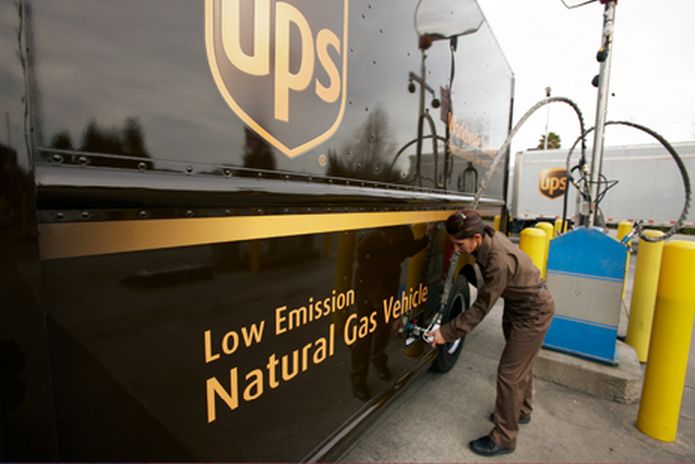 alternative fuel since about 2008, the results haven’t gone in that direction. The article cites cheap gasoline prices and growth in EV sales, including orders being placed on the Tesla Model 3, as evidence for its argument. While the natural gas-powered Honda Civic was taken off the market a few years ago, NGVs continue to play an important role for fleets converting over to clean fuel options. Transit and city fleets are bringing them in with a few major corporate fleets like UPS, Ryder System, and AT&T, continuing to acquire them and install more CNG fueling stations. Ford and GM continue to add the CNG option to their pickup trucks and van offerings. Renewable natural gas is also supporting the clean fuel and its infrastructure, as more fleets start using RNG. Liquefied natural gas is also playing a role in adoption of the fuel in various transport sectors.
alternative fuel since about 2008, the results haven’t gone in that direction. The article cites cheap gasoline prices and growth in EV sales, including orders being placed on the Tesla Model 3, as evidence for its argument. While the natural gas-powered Honda Civic was taken off the market a few years ago, NGVs continue to play an important role for fleets converting over to clean fuel options. Transit and city fleets are bringing them in with a few major corporate fleets like UPS, Ryder System, and AT&T, continuing to acquire them and install more CNG fueling stations. Ford and GM continue to add the CNG option to their pickup trucks and van offerings. Renewable natural gas is also supporting the clean fuel and its infrastructure, as more fleets start using RNG. Liquefied natural gas is also playing a role in adoption of the fuel in various transport sectors.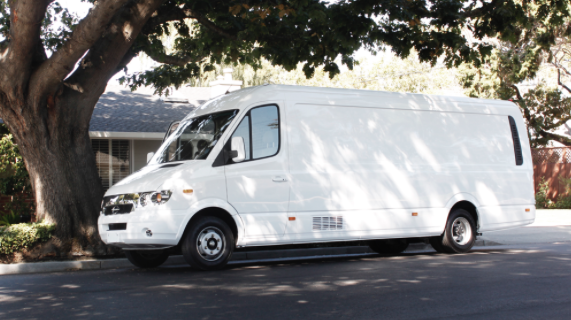 all-electric commercial vans will start being delivered later this year. The company is co-owed by Hong Kong-based FDG Electric Vehicles Limited. FDG owns other EV companies, including Prevok, a Chinese joint venture with Smith Electric Vehicles. Chanje will tap into FDG’s EV and lithium ion battery manufacturing resources. The large electric van will be sold to fleets “at a previously unavailable scale and price,” and will be “purpose-built to be a long-life truck.”
all-electric commercial vans will start being delivered later this year. The company is co-owed by Hong Kong-based FDG Electric Vehicles Limited. FDG owns other EV companies, including Prevok, a Chinese joint venture with Smith Electric Vehicles. Chanje will tap into FDG’s EV and lithium ion battery manufacturing resources. The large electric van will be sold to fleets “at a previously unavailable scale and price,” and will be “purpose-built to be a long-life truck.”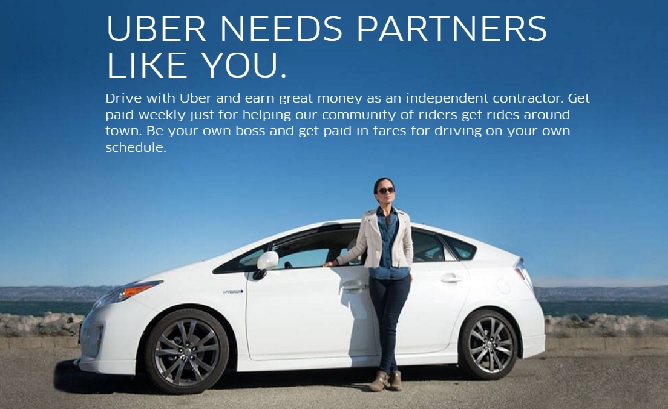 University of Michigan Transportation Research Institute, Texas A&M Transportation Institute, and Columbia University. Research was done in Austin, Texas, where ride-hail services like Uber and Lyft pulled services last year due to a local ordinance. The study found that 41% of those surveyed turned to their own vehicle after Uber and Lyft left the market; and 9% actually bought an additional car for their transportation needs. Three percent switched over to public transit; and 42% went over to another, smaller transportation networking company.
University of Michigan Transportation Research Institute, Texas A&M Transportation Institute, and Columbia University. Research was done in Austin, Texas, where ride-hail services like Uber and Lyft pulled services last year due to a local ordinance. The study found that 41% of those surveyed turned to their own vehicle after Uber and Lyft left the market; and 9% actually bought an additional car for their transportation needs. Three percent switched over to public transit; and 42% went over to another, smaller transportation networking company.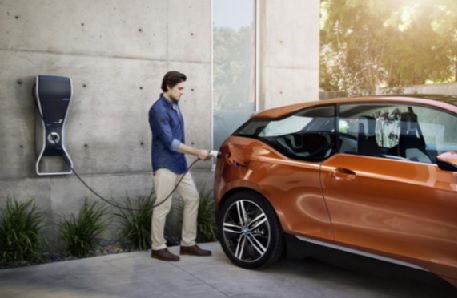 with the new plug-in hybrid Mini. Plug-in vehicles made up 4.5% of marketshare for all of the company’s vehicle sold last month. For the year, the automaker has delivered 50,711 plug-in vehicles, up a huge gain of 74.8% for the year.
with the new plug-in hybrid Mini. Plug-in vehicles made up 4.5% of marketshare for all of the company’s vehicle sold last month. For the year, the automaker has delivered 50,711 plug-in vehicles, up a huge gain of 74.8% for the year.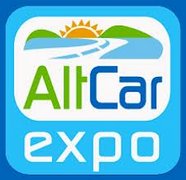 managers, sustainability directors, business owners, legislators, and others attending
managers, sustainability directors, business owners, legislators, and others attending